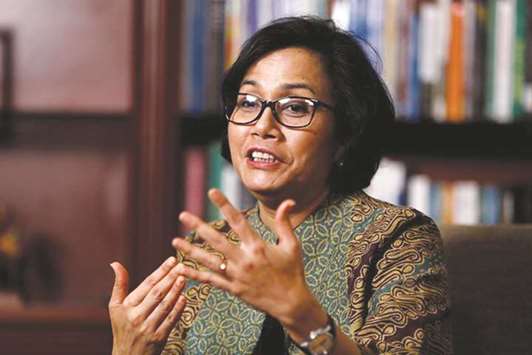Indonesia’s energy subsidy will soar to a four-year high as a price freeze ordered by President Joko Widodo ahead of next year’s general elections forces the government to underwrite losses of state-run retailers.
Total spending on subsidising various fuels and electricity is seen at 163.5tn rupiah ($11.4bn) in 2018, up from 94.5tn rupiah estimated in the budget previously,
Finance Minister Sri Mulyani Indrawati told lawmakers in Jakarta yesterday.
That would be the highest subsidy bill since 2014 and compares with 97.6tn rupiah last year, official data show.
The president, known as Jokowi, earlier this year slapped price controls on power and fuel prices, prompting criticism from analysts and credit ratings companies and raising questions about his zeal for economic reform ahead of the presidential election in April.
The increased spending is needed to support state-owned oil and gas company PT Pertamina and state-owned electricity company PT Perusahaan Listrik Negara, Indrawati said. While inflation in Southeast Asia’s biggest economy remains relatively subdued, rising 3.1% in June from a year earlier, the government is working with Bank Indonesia to keep a lid on prices. Consumer prices are seen averaging 3.5% this year, Indrawati said. The higher allocation for energy subsidies won’t widen the nation’s budget deficit because of a windfall in non-tax revenue from higher crude oil prices, according to Indrawati.
While the government’s total revenue is set to exceed the target at 1,903tn rupiah this year, tax revenue may fall short by 69.6tn rupiah, she said. The budget deficit is seen at 2.12% of gross domestic product, less than the 2.19% forecast in the annual budget, while the nation’s economy is expected to expand 5.2% in 2018, less than the government’s initial target of 5.4%, Indrawati said.

Indrawati: The higher allocation for energy subsidies won’t widen the nation’s budget deficit because of a windfall in non-tax revenue from higher crude oil prices.
